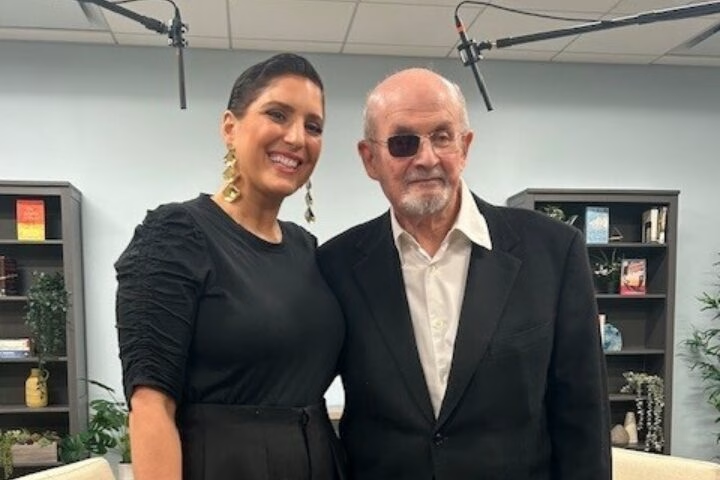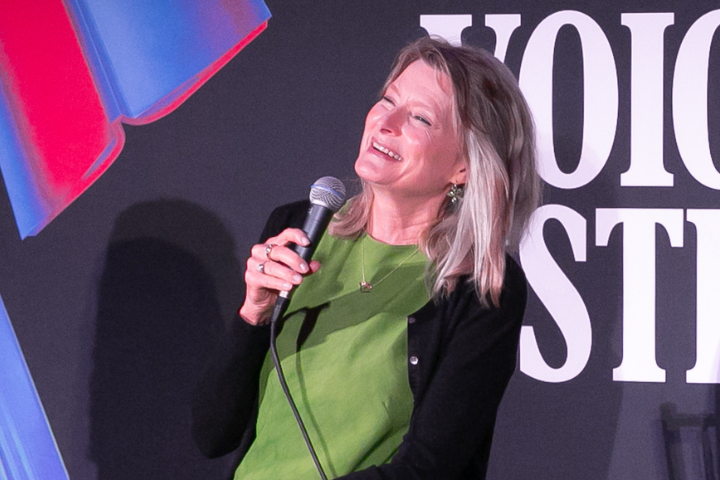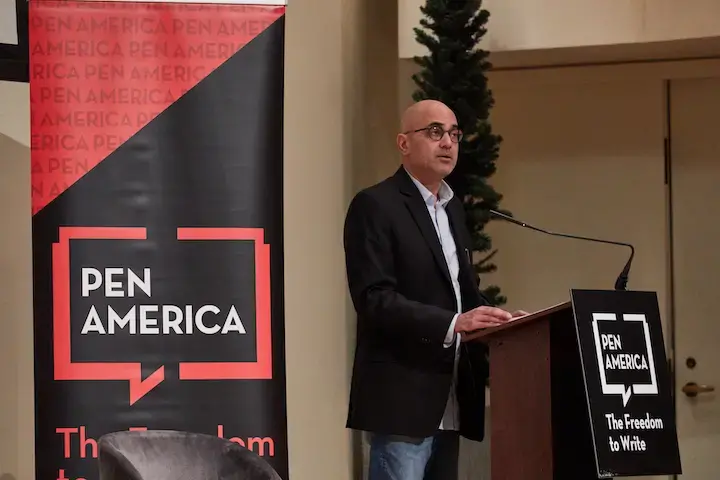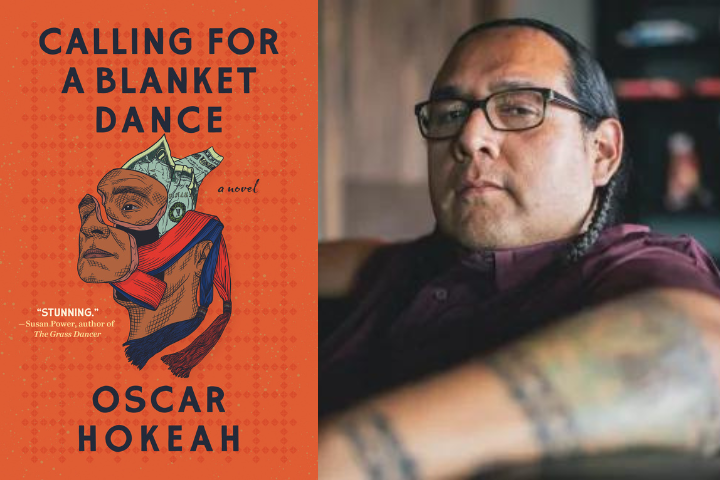
For some time after surviving the attempt on his life in 2022, Salman Rushdie did not want to write about the attack. In fact, even as he recovered from his grievous wounds, the usually disciplined writer felt he couldn’t write at all.
When Rushdie did at last return to his desk, he opened the computer file of fragments of things he’d been working on before the attack. Returning to those ideas seemed silly. He knew he had to confront the dramatic facts of his own life.
“It just became clear to me that if I didn’t face up to this, that it would actually, in a way, kill me, that it would prevent me from doing anything else. So if I wanted to actually not be killed artistically, I had to face this,” he said in a conversation with Suleika Jaouad about his new memoir, Knife: Meditations After an Attempted Murder.
Knife is a gripping account of surviving the knife attack of August 12, 2022, 30 years after the fatwa (death warrant) was ordered against him by Iran’s Ayatollah Khomeini. On Tuesday, Random House Publishing Group and PEN America presented a conversation with Rushdie, the Booker Prize-winning former PEN America president, and Jaouad, the New York Times bestselling author of Between Two Kingdoms.
Rushdie said the book’s title refers to the knife attack, but also to the book itself, which is his own weapon. “I had this image that against my will, I’ve been caught up in a knife fight. I don’t want to be in a knife fight. But I’m in one, and if I’m in one, I better have a knife of my own. And that’s what this is.”
“I think, you know, somebody tries to kill you, it’s a way of silencing your voice. That’s what it’s trying to do. If you can reply to that by making your voice louder than before, then that’s the best answer, it seems to me. I hope that this book might do that.”
Rushdie read a passage from Knife about the disorienting first glimpse of his own face, months after the attack, and discussed the trauma that followed, including “a long period of more or less nonstop nightmares, thrashing around in the bed, sometimes actually thrashing around so much I fell out of the bed.”
There are fewer nightmares now, but the trauma of the attack endures. “I don’t know that you entirely recover from something like this. Maybe it just becomes a part of the new self that you have to accept that you now are,” he said.
Rushdie confessed that if he had been told back in 1989, when the fatwa happened, how the next decades of his life would be, “I would not have bet on myself. I would have thought, I’ll be a wreck. If I’m even alive, I would be a wreck. And the fact that I am alive and I’m not a wreck, indicates that I’m tougher than I thought.”
He attributes his salvation to the love that surrounds him – to the bravery of those who came to his rescue as he lay bleeding from knife wounds at the Chatauqua Institute in upstate New York, and to the loving care during his long recovery that he received from his wife, Rachel Eliza Griffiths, the poet and novelist.
“I became the person who was on the one hand, the target of death, and on the other hand, the recipient of love. And that became to me the book I was writing,” he said. “It was about a kind of confrontation, between death and love between the worst things in the world, and the best things in the world, the worst of human nature, and the best of human nature, and that they collided around my unfortunate body. I managed to not die and managed to be saved by love. So that’s what I think the book says.”






